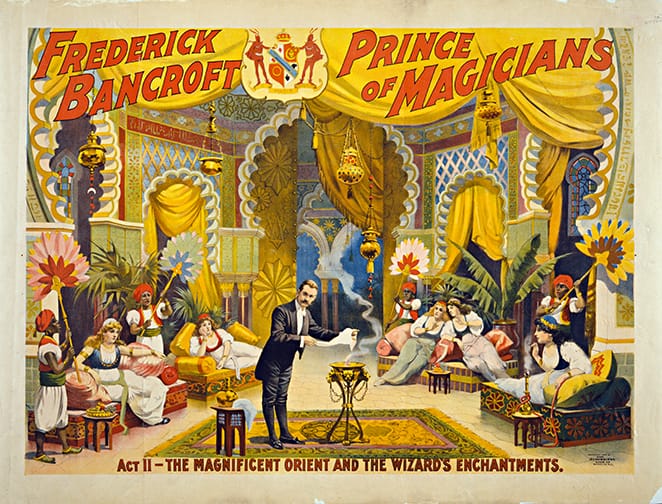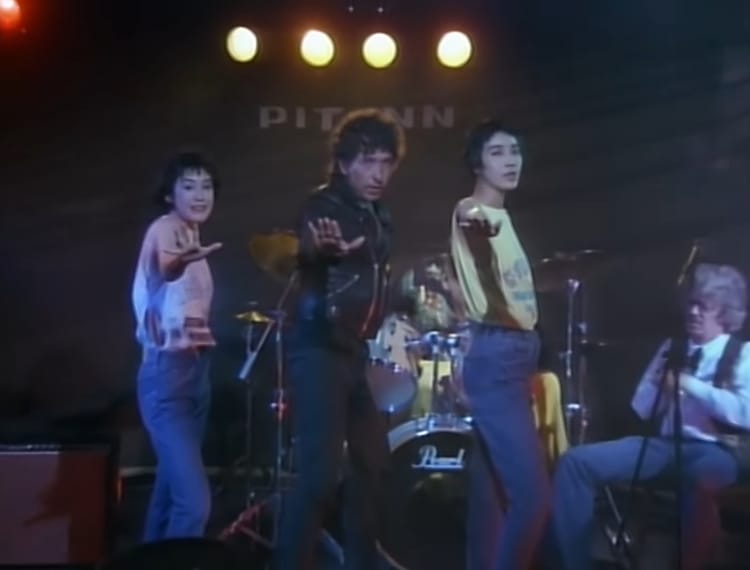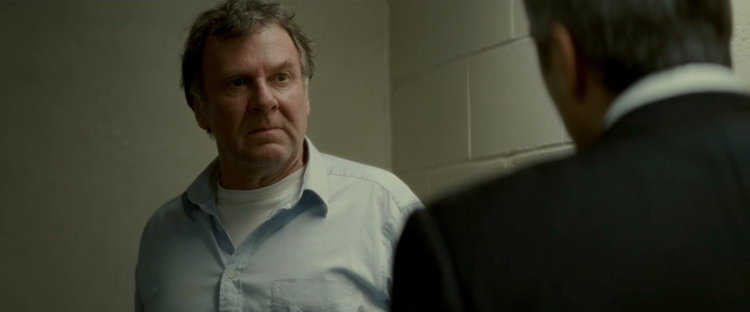"Nope" Reviewed
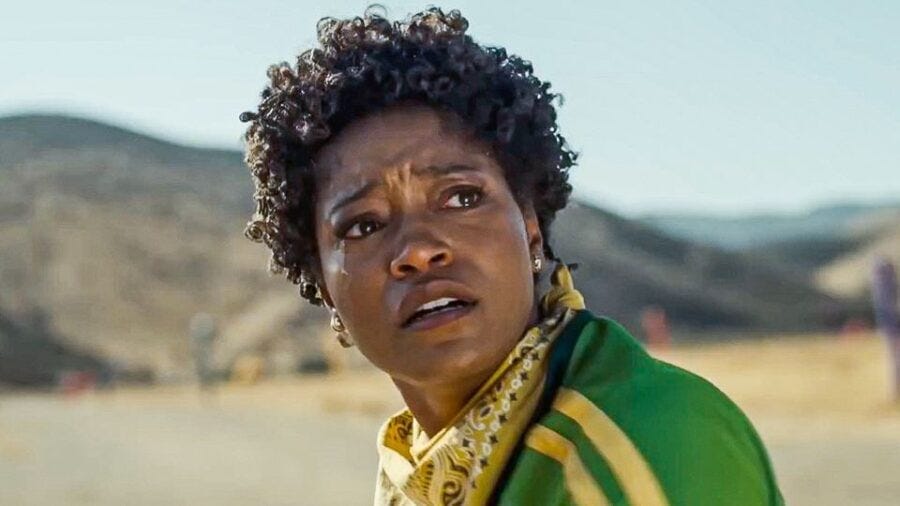
Review: Nope
Jordan Peele’s Nope begins with an epigraph drawn from the Book of Nahum, an Old Testament text written by what’s called a minor prophet. Nahum prophesied the forthcoming destruction of the Assyrian empire—“I will pelt you with filth,” reads Peele’s chosen verse, “I will treat you with contempt and make you a spectacle.”
The reference connects very directly to the events of Peele’s third feature, but more than that, it signals the film’s ambitions. This will be a big story, the Biblical nod seems to suggest. Forget the Twilight Zone-esque chamber piece of Get Out and surrealist grindhouse thrills of Us; it’s time for Jordan Peele’s operatic leap into the realm of blockbuster filmmaking. And, as anyone who’s watched Peele step from the role of TV comedian into his rightful reputation as one of the most talented and exciting auteurs working today should guess, his version of a blockbuster won’t be as simple as that descriptor suggests.
As the marketing has made little effort to hide, Nope is a work of science fiction, which means its opening—in which Peele drops us into the quiet aftermath of what’s clearly been a truly horrifying and initially inexplicable incident—throws the viewer immediately off-balance. Peele’s measured first act continues unfolding at a pleasurably languorous pace as we move into a second quietly gruesome story beat, one that plays out in lengthy, patient tracking shots that obscure as long as possible the horror we’re witnessing. Finally, we see a title card, which is followed by the sort of extended, comprehensive opening credits sequence you just don’t see anymore in mainstream filmmaking. The overall effect serves to slow the viewer down, preparing us for an expansive story that’s simultaneously as intimate as any movie of this scale has ever been.
Our protagonists are Otis Jr., or OJ (Daniel Kaluuya), a withdrawn animal trainer living on a breathtaking southern California ranch where he mourns his father while selling off portions of the man’s legacy, and OJ’s gregarious sister Emerald, or Em (Keke Palmer), who’s recently returned to help OJ juice (sorry) the family business. These two, you see, are not just trainers but the great-great-great-great grandchildren of the jockey depicted riding a galloping mare in Eadweard Muybridge’s 1878 set of cabinet cards that constituted one of the first examples of images synchronized to create the impression of movement. That sequence is titled Sallie Gardner, the name of the horse; what’s generally omitted from film history is the name of the Black jockey, and this obscured legacy forms a significant wound for the family, as well as a thematic core for the film. “What we’re about to do,” OJ will say later, “they can’t erase that.” They will try, as OJ prophesies, to “take it all for themselves,” but lacking the extraordinary resilience demonstrated by the Haywood siblings, they will most likely wish they hadn’t.
Nope proceeds with graceful deliberateness through a taut 130-minute runtime, adding brushstrokes that call to mind classic American Gothic narratives—with two siblings reunited in their departed patriarch’s creaking manse, portions of the story recall nothing so much as Eugene O’Neill, or at least Tracy Letts—while a parallel storyline concerning the gleefully garish but nonetheless traumatized survivor of the opening’s hinted-at past tragedy (Steven Yeun) contributes an almost novelistic narrative density. Peele’s effects are aided substantially by composer Michael Abels’ score, which calls to mind the placid anxieties of Jonny Greenwood and Philip Glass in the early going before shifting to stirring echoes of John Williams splendor and finally going full soaring Elmer Bernstein in the pulse-pounding closing stretch.
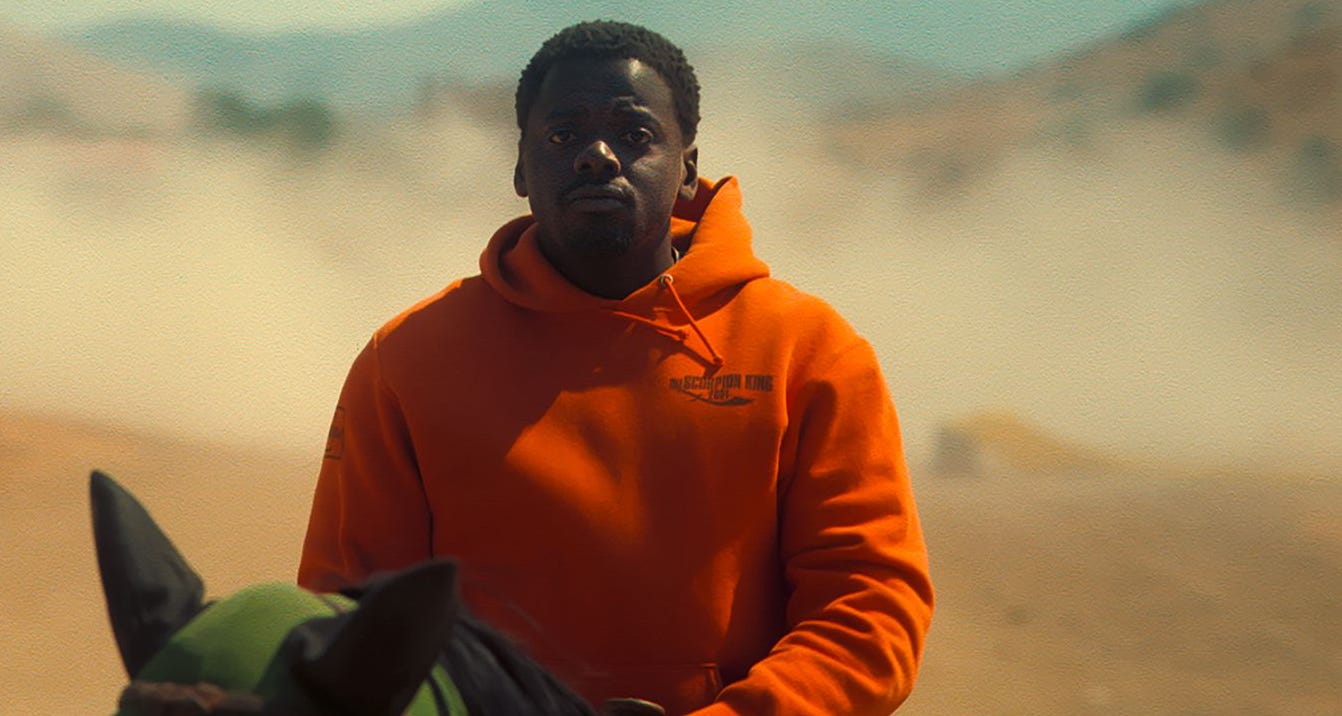
If it feels like I’m talking around the plot of Nope, I am. This is a film that benefits from being seen with as little forewarning as possible. Suffice it to say the Haywoods do bear witness to the entity that convinced some viewers of the trailer that the title, most often stylized as NOPE, stands for “Not of Planet Earth.” To say any more about the nature of what they see—and eventually tangle with—would be to lose a substantial portion of pleasurable dread and gathering wonderment. Peele’s imagination has conjured an invasion unlike anything we’ve ever seen, and while the story possesses a constant and genuine sense that absolutely anything could happen, by the climax, the seemingly incongruous threads set up in the first act have come to bear with such thematic resonance and narrative harmony that the story is revealed to have been hurtling towards an inevitable endpoint all along. It’s a trick as startling and dazzling as Muybridge’s must have been to late-19th century viewers, and the fact that it belongs to a Black filmmaker is anything but incidental.
Audiences have likely now come to expect any Jordan Peele film to be about more than its extraordinary plot mechanics, from the violent fetishization and obliterative appropriation of Black culture in Get Out to the unseen victims of American prosperity in Us. If Nope is about anything more than two siblings doing battle with a seemingly unstoppable force, it’s primarily the erasure of Black contributions to film history. The Haywoods have some interest in saving the day, but it’s ultimately secondary to their dogged mission to capture the first incontrovertible evidence of extraterrestrial life, a potential contribution to filmed history so significant that even they (by implication a very white they) won’t be able to rub this family out of the history books. This is less subtext than text, but it lends a haunting weight to the story’s pulp (and, quite often, gut-twistingly gruesome) theatrics.
Ultimately, Nope should be filed less as science fiction than as a classic monster movie, and Peele’s creature design, once finally revealed, is so original and indescribable as to inspire authentically earned awe. With several narrative threads coalescing around themes of respecting the unfathomable mysteries of the natural world, and the hubris of believing nature can be tamed, Peele layers in an allegory that’s somewhat less trenchant than the one found in Us, but one that nonetheless provokes consideration. In broadening his scope and scale, Peele continues demonstrating his mastery of every element of his craft, and at this point, it feels like he’s capable of absolutely anything. He is certainly no minor prophet.
Nope will be in theaters everywhere beginning this Thursday evening.
Sundry Ephemera
Speaking of unconventional sci-fi, this week my wife and I finished the first season of For All Mankind. I had somehow managed to file this show as “not for me” based entirely on a vague belief that I wasn’t interested in the inner workings of NASA, but I’m glad I listened to the gathering buzz and took the plunge because I don’t remember the last time I discovered a show I’d so confidently call capital-G Great.
The pilot begins with one of the most devilishly tantalizing opening sequences I’ve ever seen: in 1969, the world’s population gathers around their televisions to watch the moon landing, but when the astronauts step out and plant their flag, it’s the Soviet one. Thus begins a chain reaction that sets history off on an alternate track, with ripple effects that range from the seemingly minor (Nixon’s embarrassment that Russia puts a woman on the moon before America leads to an ensemble of female astronauts crashing the boys’ club) to the undeniably major (Ted Kennedy is called away from his fateful trip to Chappaquiddick, with the elimination of that real-life scandal allowing him to win the presidency). Far from a string of what-ifs, though, For All Mankind is anchored by its characters, whose professional and domestic lives wrapped themselves around my heart almost immediately and only gathered power until the first season finale provoked audible sniffles in my house more than once.
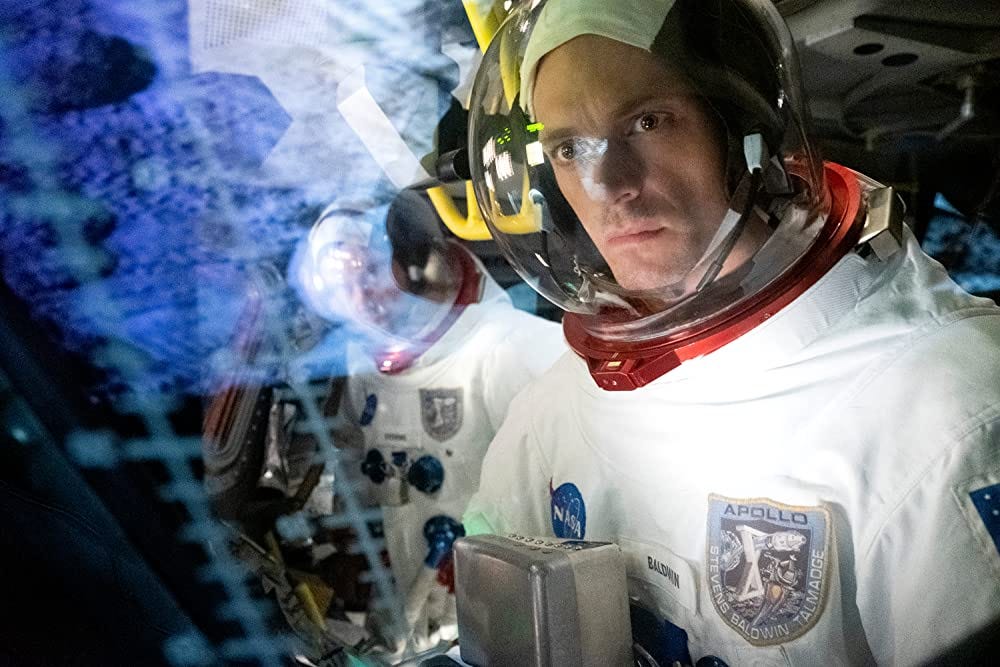
For All Mankind was co-created by Ronald D. Moore, the man behind the ‘00s relaunch of Battlestar Galactica, and though the series is grounded in realism (and thus free of that show’s evil robots), he brings along his prior work’s constantly-escalating stakes, breathtaking twists and time-jumps, and visceral sense of space as a space. Virtually every other episode climaxes with some sequence that had me contorting my body with stress, the kind of blissful anguish you can only get when you’re truly invested in a narrative. I have vague memories of hearing this was one of those It gets good in later seasons-type show, but if I did hear that, it was nonsense. I was hooked from the jump and spent every day waiting eagerly to devour another episode that night. If it gets good by the currently-airing third season, I can’t wait to see how Moore and co. will twist my stomach and make my heart soar by then.
I also recently enjoyed one of life’s great pleasures: taking a long walk to listen to the new episode of Rude Tales of Magic. Let me list a handful of things I have very little interest in: improv comedy, fantasy fiction, and tabletop role-playing games. I won’t mount any particular defense of my distastes; all I’m trying to do is set up a remarkable fact: one of my favorite works of art to come into my life in the past few years has been a podcast in which improv comedians play a fantasy tabletop role-playing game.
Maybe that sounds interesting to you on its face; maybe this recommendation is an easy sell. For me, it wouldn’t necessarily have been one, but I followed comedian and cartoonist Branson Reese from his Twitter account to his Letterboxd account to this podcast for which he plays Dungeon Master. This show is somehow both exactly what it sounds like—a bunch of funny people playing a years-long Dungeons & Dragons campaign—and transcendent of that description. So deftly and slowly that it seems almost like sleight of hand, the cast (Ali Fisher, Christopher Hastings, Joe Lepore, Carly Monardo, and Tim Platt, with the support of super-producer Taylor Moore) has taken their outrageous characters (respectively, a sasquatch, a living skeleton, a blue half-demon, a faun, and a giant talking crow—each of these archetypes has a D&D title but I won’t bother to look them up as it’s entirely secondary to my enjoyment) and built them into an ensemble capable of both hilarity and deep pathos as they march through a storyline that’s encompassed not just classic fantasy, but college comedy, murder mystery, riffs on Spielberg’s Duel and Tarkovsky’s Stalker, and realms of storytelling I’ve never heard before and could scarcely describe.
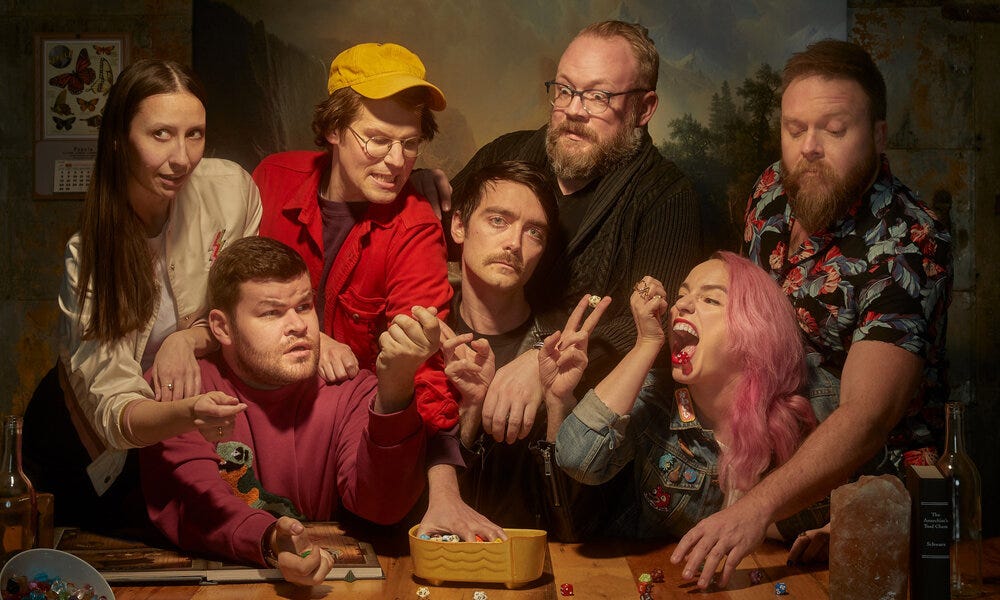
Across the show’s almost three-year span, Moore has increasingly edited out the dice-rolling that characterizes tabletop gaming, a choice that’s apparently courted some controversy among the tabletop podcast community, who now classify it more as an improv show than a gameplay one. What he leaves in most often, though, are the cast’s reactions to one another, be it laughter or expressions of shock and awe. When I listen to Rude Tales of Magic, I’m both enjoying a riveting story—narrated by Reese with a wit and imagination that, and I’m sorry to lean on stock phrasing, just has to be heard to be believed—and indulging a parasocial urge to spend time with some of the quickest and cleverest minds I’ve ever had the pleasure of hearing. I care about these characters without ever forgetting the people who are bringing them to life and deepening their characterization basically on the fly. Reese has repeatedly stated that he takes his players’ cues on where to take the story, warping his own plans when they make a surprising or exciting move, and the result is a narrative that lives and breathes moment to moment and year to year. There’s nothing quite like the feeling of seeing a new (and, based on the unusual circumstances of their recording, sporadic) episode of Rude Tales pop up on my phone, and there could be few recommendations I feel so strongly about making—as long as you have a high tolerance for what my mom would call the rude, crude, and socially unacceptable.
Oh yeah, also…
- The format of this newsletter owes a lot to Fran Hoepfner’s superlative Fran Magazine. There’s nobody more fun to read than Fran, and her newsletter is more than worth a subscription.
- My bosom friend Ryan Pollie has produced some stunning tracks in his home studio over the past few months—I’m particularly fond of Sharon Silva’s sunny “Scorekeeper,” Teddy Grossman’s mellow “What I Owe,” and Corey Leiter’s folked-up “Burn You.”
- The mega-talented Veronica Fitzpatrick covered The Color of Money for Bright Wall/Dark Room with a gorgeous mix of insight and introspection.
- I went long on Adaptation for the “Voyeur” issue of BW/DR, and eulogized the miraculous Joe Pera Talks With You for Polygon.

